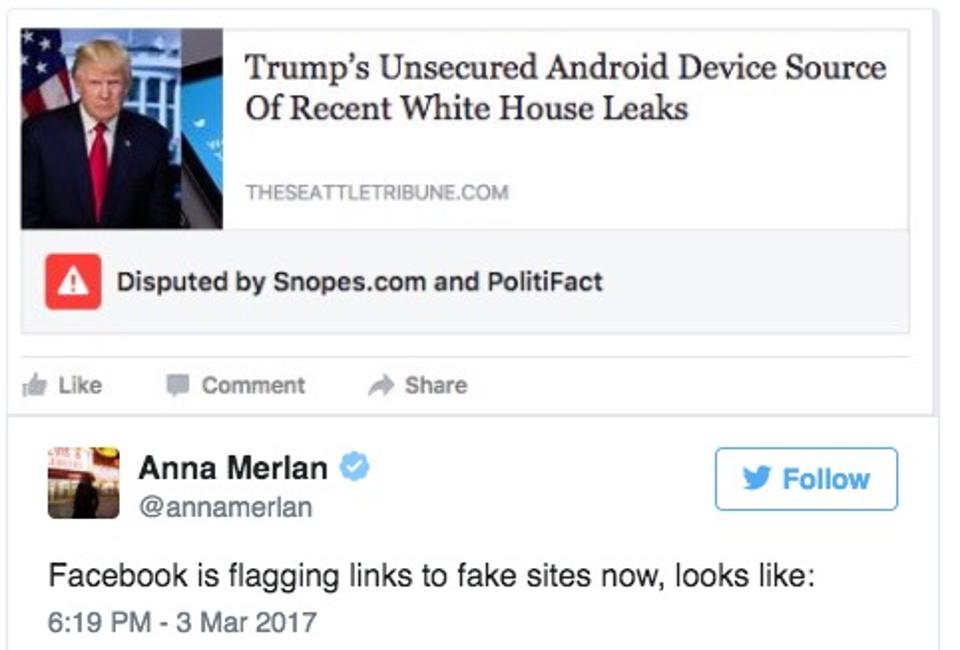
Facebook CEO Mark Zuckerberg speaking during the APEC CEO Summit in November 2016. (Courtesy: Rodrigo Buendia/AFP/Getty Images)
(Amit Chowdhry, Forbes) – During the presidential campaign late last year, substantial amounts of misleading information in the form of fake news spread about President Donald Trump and presidential candidate Hillary Clinton on Facebook and Google. Google responded by banning fake news outlets from the AdSense display ad network and by tweaking the Google News algorithm to filter out fake news. And Facebook has just launched a tool that flags fakes news in the News Feed, according to a tweet posted by Gizmodo investigative reporter Anna Merlan.

In the screenshot above, you will notice a headline that says “Trump’s Unsecured Android Device Source Of Recent White House Leaks.” This fake news article was spread by a website called TheSeattleTribune.com. While this domain might sound legitimate and the homepage does not show any signs of the website being a fake news source, it has an inapparent disclaimer that says “The Seattle Tribune is a news and entertainment satire web publication. The Seattle Tribune may or may not use real names, often in semi-real or mostly fictitious ways. All news articles contained within The Seattle Tribune are fictional and presumably satirical news – with the exception of our ‘list style’ articles that include relevant sources.” However, the article about President Trump’s “unsecured Android device” was viewed nearly 200,000 times and TheSeattleTimes.com financially benefitted from the traffic.
Fortunately, Facebook’s new tool appears to be showing that the article was “Disputed by Snopes.com and PolitiFact” so that users should not be fooled into thinking that it is true going forward. Snopes is a website that clears up misinformation that spreads on the Internet and PolitiFact fact-checks political claims by officials. All of the non-partisan fact-checkers that Facebook appointed to help with the prevention of misinformation are required to sign a “Code of Principles” by the Poynter non-profit school for journalism.


Facebook
Twitter
Pinterest
RSS